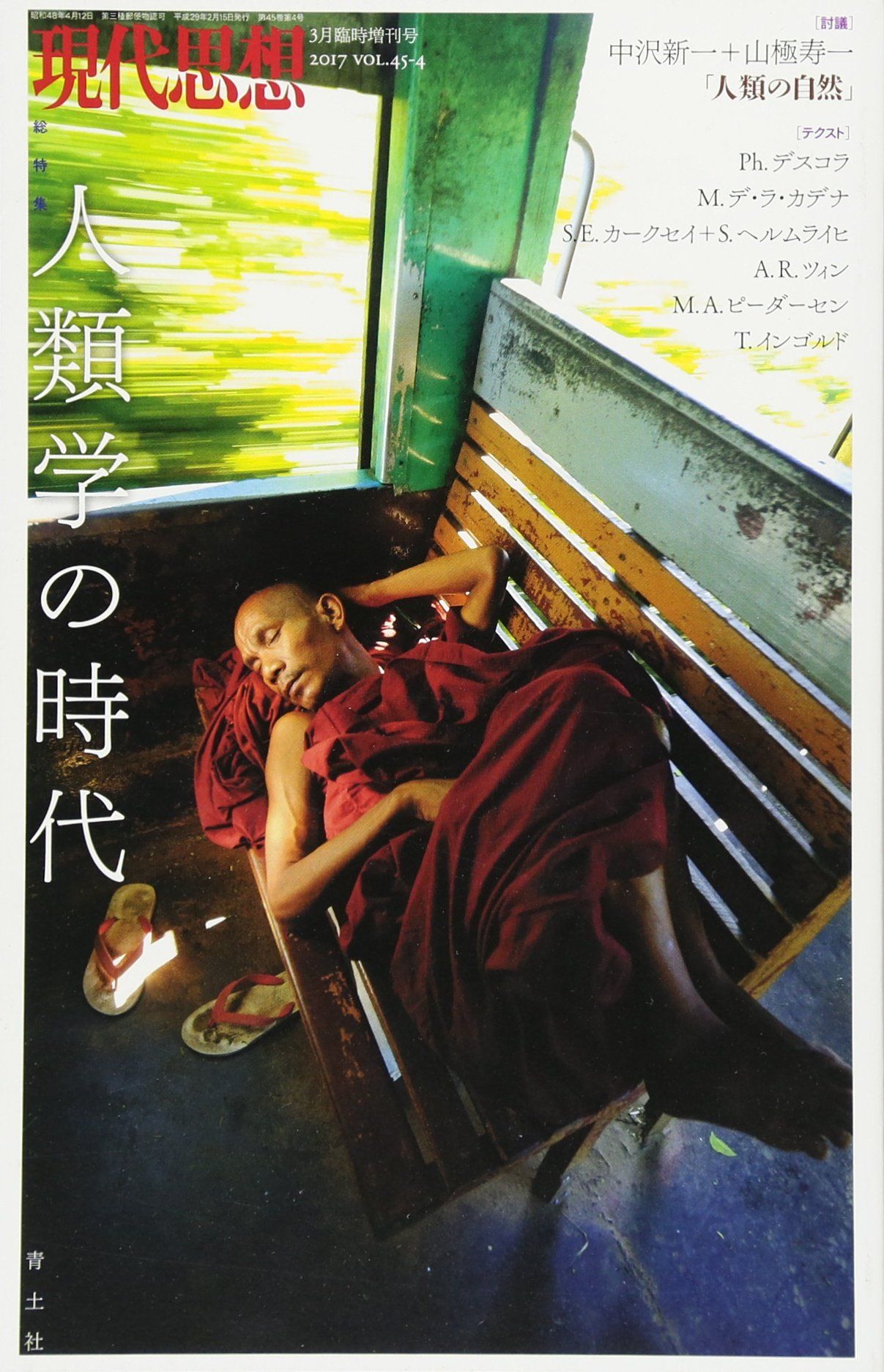The Anthropological Turn series, Suiseisha
In 2015, a Japanese publisher, Suiseisha (水声社), whose previous focus was French and other international literature, started a new translation series called “The Anthropological Turn (人類学の転回 jinruigaku no tenkai),” reflecting Japanese general readers’ interest in anthropologies of science and technology and their relations to philosophy, literature, and arts.
The series includes: Marilyn Strathern’s Partial Connections (2015 『部分的つながり』[publication date of the Japanese translation]), Eduardo Viveiros de Castro’s O mármore e a murta: sobre a inconstância da alma selvage (2015『インディオの気まぐれな魂』), Annemarie Mol’s The Body Multiple: Ontology in Medical Practice (2016『多としての身体:医療実践における存在論』), Michel Serres’s Écrivains, savants et philosophes font le tour du monde (2016『作家、学者、哲学者は世界を旅する』), Trinh T. Minh-ha’s Framer Framed (2016『フレイマー・フレイムド』), Frédéric Keck’s Un monde grippe (2017『流感世界 : パンデミックは神話か』), Bruno Latour’s La fabrique du droit : une ethnographie du Conseil d'État (2017『法が作られているとき : 近代行政裁判の人類学的考察』)

The Body Multiple, Japanese translation
Juxtaposition By Annemarie Mol: The author's introduction to the Japanese translation of The Body Multiple.
Gendaishisho (Contemporary Thought) special issues
Gendaishiso (現代思想) is a monthly academic/popular journal, which led a Japanese intellectual movement called New Academism (inspired by structuralism, post-structuralism, and postmodernism) in the 1980s. Recently, Gendaishiso has hosted several issues related to the anthropologies of science and technology.
One of the special issues, The New Directions in Anthropology (人類学のゆくえ), published in March 2016, includes translated lectures and articles by Philippe Descola, Eduardo Viveiros de Castro, Marilyn Strathern, and Patrice Maniglier.

The Age of Anthropology (人類学の時代), another special issue published one year later (in March 2017), starts with a conversation between Shinichi Nakazawa (anthropologist) and Juichi Yamagiwa (primatologist). It includes the translated texts of Philippe Descola, Marisol de la Cadena, S. Eben Kirksey and Stefan Helmreich, Anna Tsing, Morten Axel Pedersen, and Tim Ingold.
A regular issue called The Cutting Edge of Primatology (霊長類学の最前線, December 2016), starts with a conversation between Juichi Yamagiwa (the same primatologist) and Masakazu Tanaka (anthropologist). Anthropologists such as Akinori Kubo (anthropology of technology, robots, and AI) and Takanori Oishi (ecological anthropology, multispecies anthropology) also contributed articles discussing human/non-human relations.
In December 2017, the journal published an issue on Anthropocene (人新世), introducing the concept with the translated texts of Casper Bruun Jensen, Bruno Latour, and Donna Haraway, along with original articles by Japanese anthropologists including Keiichi Omura (indigenous movements) and Katsumi Okuno (multispecies ethnography).
Anonymous, "Publication Trends around anthropology and STS", contributed by Yoko Taguchi, STS Infrastructures, Platform for Experimental Collaborative Ethnography, last modified 27 July 2020, accessed 4 April 2025. https://stsinfrastructures.org/content/publication-trends-around-anthropology-and-sts
Critical Commentary
The intersections of anthropology and STS in Japan have recently created a kind of new publication trend, which serves to introduce and deepen global anthropological discussions, including the ontological turn, human/non-human relations, multispecies ethnography, and the Anthropocene.